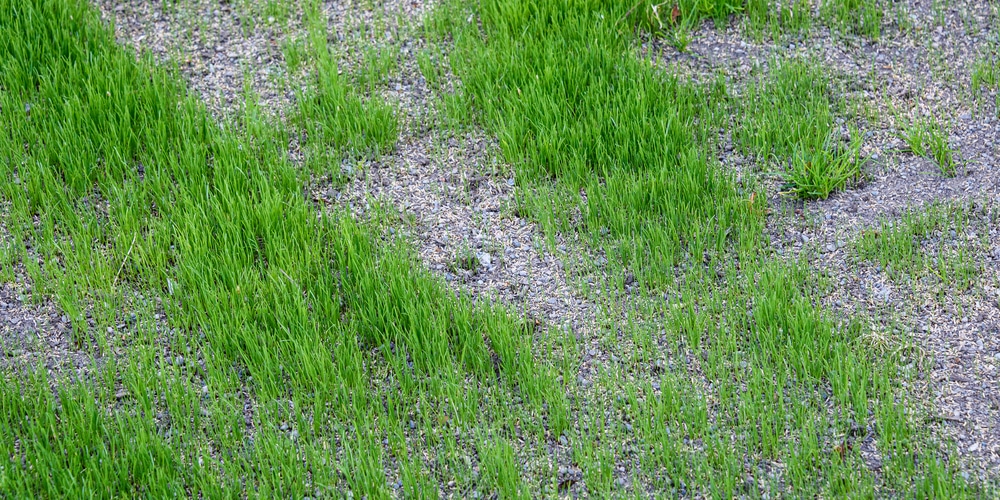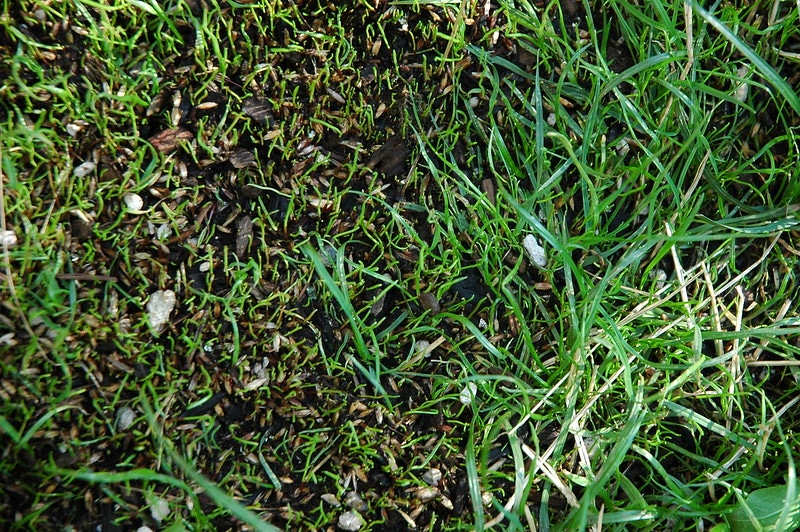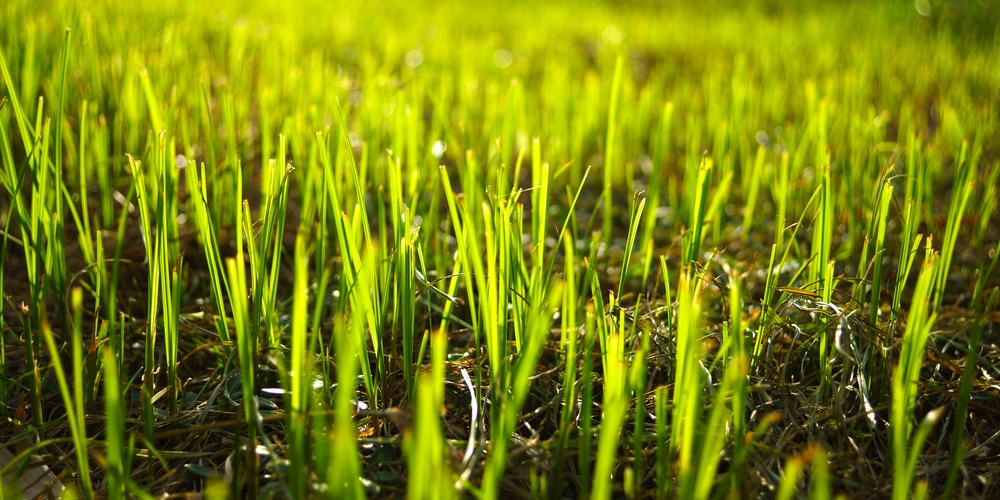Georgia is a beautiful state with a rich history. From the moment you set foot in Georgia, you can feel the southern hospitality. The people are friendly and welcoming, and the landscape is stunning. The lush and emerald green blades of grasses complement perfectly Georgia’s red clay soil. Bermuda is among the common types of grass you’ll see in Georgia lawns. You may be wondering, when to overseed bermuda in Georgia.
Bermuda is a warm-season grass known for its thick, dense growth. Locals often choose this grass type because it’s easy to care for and can withstand heavy foot traffic.
While Bermuda is a tough grass, it’s not invincible. Over time, your Bermuda lawn may start to thin out. You may notice more bald spots and patches of dead grass. This is usually a sign that it’s time to overseed your Bermuda lawn. Let’s look at when to overseed Bermuda in Georgia.
When to Overseed Bermuda in Georgia
Overseeding is simply defined as the process of planting new grass over your existing Bermuda lawn. This is usually done in an effort to fill in any bald or thin spots if any. Although overseeding may seem daunting, this is one of the many secrets to having a lush, green lawn.
In Georgia, mid-spring is the ultimate time to overseed your Bermuda lawn. This is because the weather conditions are ideal for grass growth. Ideally, it’s best to do this when the soil temperatures are around 60 degrees.
The colder weather means that your existing Bermuda grass won’t compete with the new grass seeds for sunlight, water, and nutrients.
Georgia’s temperate climate means you have a longer window to overseed your Bermuda lawn. Ensure you consistently check the soil’s temperature and only overseed when the conditions are ideal. Overseeding in mid-spring will give your Bermuda lawn the best chance to fill any bald or thin spots.
Proper Way of Overseeding Bermuda Grass
Overseeding isn’t simply spreading a new layer of grass seeds over your lawn and watering it regularly. If you want to achieve a thick, green, and healthy lawn, then you must do it the right way.
Here are the steps on how to overseed your Bermuda lawn in Georgia:
Mow Your Turf Grass Short
Set your lawnmower to its lowest setting and mow it short, leaving about ¼ inch of the grass blade.
Apply Growth Regulator on Your Existing Grass
A growth regulator helps slow down the growth of your existing grass. This is important because you don’t want the new grass seeds to compete with the existing ones for essential nutrients. Do this at least 2 weeks prior to overseeding.
Loosen the Soil
You may either aerate or simply loosen the soil with a garden rake. This will allow the new grass seeds to quickly establish a good root system.
Spread the Seed Uniformly
You’d want to spread the seeds as evenly as possible. You may use a seed spreader for this task.
Fertilize and Water Regularly
After you’ve spread the new grass seeds, fertilize and water them regularly. In Georgia, the weather is usually hot and humid. This means that you’ll need to water your lawn more often. Check the soil regularly and water it when it’s dry.
Mowing Your New Grass
Once the new grass has germinated, you can now start mowing it. While it may seem counterproductive, mowing your newly sprouted grass means that you’re encouraging new growth. Just make sure to set your lawnmower to a higher setting.
You may have to do this several times until your Bermuda lawn is thick and dense again.
How Often Should You Overseed Your Bermuda Lawn?
There’s no denying that Bermuda grasses are some of the most resilient warm-weather grasses out there. It doesn’t require a lot of care, it can resist most pests and diseases, and these grasses can take a lot of heavy foot traffic with ease. However, there’ll come a time that you’ll notice that your lawn starts to thin out.
It’s important to note that you don’t need to overseed your lawn every year. In fact, doing so may do more harm than good. Bermuda grasses are known to be very aggressive growers. Overseeding too often will only cause the new grass seeds to compete with the existing ones for essential nutrients. This will only result in a weaker and less healthy lawn.
Ideally, you should overseed your Bermuda lawn every two to three years. After a couple of years, you’ll notice that your lawn starts to look thinner. Only at this time is it okay to overseed your lawn.
Remember, if your Bermuda lawn looks dense and thick, and you don’t have any issues with bald or thin spots, then there’s no need to overseed it just yet.
When to Overseed Bermuda in Georgia: Final Thoughts
Getting the perfect timing and method for overseeding your Bermuda lawn is essential to achieving the thick and green lawn that you desire. Remember, you don’t have to keep this an annual activity. Only overseed whenever necessary to maintain a healthy and dense lawn.


